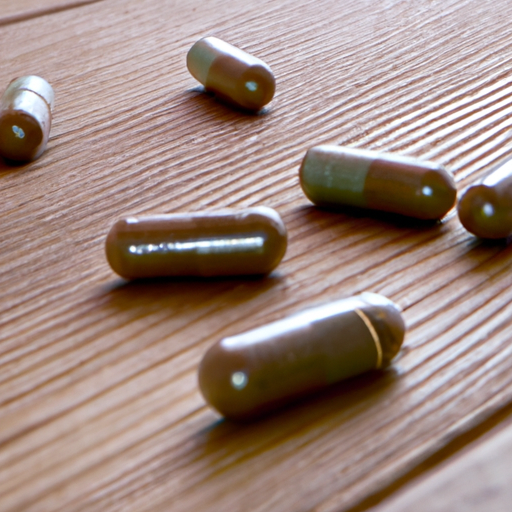
Vitamins For Muscle Tightness
-
Contents
Table of Contents
Vitamins are essential for maintaining a healthy body and mind. They are essential for muscle tightness, as they help to keep the muscles strong and flexible. Vitamins can be found in a variety of foods, including fruits, vegetables, grains, and dairy products. Additionally, there are many supplements available that can help to provide the necessary vitamins for muscle tightness. In this article, we will discuss the different types of vitamins that can help to improve muscle tightness, as well as the best sources of these vitamins. We will also discuss the potential side effects of taking too much of certain vitamins. Finally, we will provide some tips on how to get the most out of your vitamin intake for muscle tightness.
The Benefits of Vitamin C for Muscle Tightness
Vitamin C is an essential nutrient that plays a vital role in many bodily functions. It is well known for its role in supporting the immune system, but it can also be beneficial for muscle tightness. Vitamin C is an antioxidant that helps to reduce inflammation and oxidative stress, which can lead to muscle tightness. Additionally, it helps to support the production of collagen, which is a protein that helps to keep muscles and joints flexible.
The body does not produce Vitamin C, so it must be obtained through diet or supplementation. Foods that are high in Vitamin C include citrus fruits, bell peppers, broccoli, and strawberries. Vitamin C supplements are also available in a variety of forms, including tablets, capsules, and powders.
Vitamin C can help to reduce muscle tightness in several ways. First, it helps to reduce inflammation, which can cause muscles to become tight and sore. Additionally, Vitamin C helps to support the production of collagen, which helps to keep muscles and joints flexible. Finally, Vitamin C helps to reduce oxidative stress, which can lead to muscle tightness.
Vitamin C can also help to improve overall muscle health. It helps to support the production of carnitine, which is an amino acid that helps to transport fatty acids to the muscles for energy. Additionally, Vitamin C helps to support the production of creatine, which is an amino acid that helps to increase muscle strength and endurance.
In conclusion, Vitamin C is an essential nutrient that can be beneficial for muscle tightness. It helps to reduce inflammation and oxidative stress, and it supports the production of collagen and carnitine. Additionally, it helps to improve overall muscle health by supporting the production of creatine. For these reasons, it is important to ensure that you are getting enough Vitamin C in your diet or through supplementation.
How Vitamin D Can Help Relieve Muscle Tightness
Vitamin D is an essential nutrient that plays a vital role in many bodily functions. It is well known for its role in helping to maintain healthy bones and teeth, but it can also help to relieve muscle tightness.
Muscle tightness is a common problem that can be caused by a variety of factors, including stress, poor posture, and overuse. It can lead to pain, discomfort, and reduced mobility. Fortunately, vitamin D can help to alleviate these symptoms.
Vitamin D helps to regulate the production of calcium and phosphorus in the body, which are essential for muscle contraction and relaxation. It also helps to reduce inflammation, which can contribute to muscle tightness. Additionally, vitamin D helps to regulate the production of hormones, such as testosterone and estrogen, which can affect muscle tone.
The best way to get enough vitamin D is through exposure to sunlight. However, if you are unable to get enough sunlight, you can also get vitamin D from certain foods, such as fatty fish, egg yolks, and fortified milk. You can also take a vitamin D supplement.
If you are experiencing muscle tightness, it is important to speak to your doctor to determine the cause and the best course of treatment. In addition to getting enough vitamin D, you may also need to make lifestyle changes, such as exercising regularly and stretching.
By getting enough vitamin D and making other lifestyle changes, you can help to reduce muscle tightness and improve your overall health.
The Role of Vitamin B Complex in Reducing Muscle Tightness
Vitamin B complex is a group of eight essential vitamins that play an important role in maintaining overall health. These vitamins are involved in a variety of metabolic processes, including energy production, nerve function, and muscle health. Recent research has suggested that vitamin B complex may be beneficial in reducing muscle tightness.
The B vitamins are involved in the production of energy in the body. When the body is deficient in these vitamins, it can lead to fatigue and muscle weakness. This can cause the muscles to become tight and sore. Supplementing with vitamin B complex can help to restore energy levels and reduce muscle tightness.
Vitamin B complex is also important for nerve function. It helps to maintain the integrity of the nerves and ensure that they are functioning properly. When the nerves are not functioning properly, it can lead to muscle tightness and spasms. Supplementing with vitamin B complex can help to improve nerve function and reduce muscle tightness.
Vitamin B complex is also important for muscle health. It helps to maintain the strength and integrity of the muscles. When the muscles are weak, they can become tight and sore. Supplementing with vitamin B complex can help to improve muscle health and reduce muscle tightness.
In addition to supplementing with vitamin B complex, it is important to maintain a healthy lifestyle. This includes eating a balanced diet, exercising regularly, and getting enough rest. These activities can help to reduce muscle tightness and improve overall health.
In conclusion, vitamin B complex is an important group of vitamins that play an important role in maintaining overall health. Recent research has suggested that supplementing with vitamin B complex may be beneficial in reducing muscle tightness. In addition to supplementing with vitamin B complex, it is important to maintain a healthy lifestyle to reduce muscle tightness and improve overall health.
The Impact of Vitamin E on Muscle Tightness
Vitamin E is a powerful antioxidant that has been studied for its potential to reduce muscle tightness. It is believed that Vitamin E can help to reduce inflammation and oxidative stress, which can lead to muscle tightness. Additionally, Vitamin E has been shown to improve circulation, which can help to reduce muscle tension.
The effects of Vitamin E on muscle tightness have been studied in a number of clinical trials. In one study, participants were given either a placebo or a Vitamin E supplement for eight weeks. At the end of the study, those who had taken the Vitamin E supplement reported a significant reduction in muscle tightness compared to those who had taken the placebo.
In another study, participants were given either a placebo or a Vitamin E supplement for four weeks. At the end of the study, those who had taken the Vitamin E supplement reported a significant reduction in muscle tightness compared to those who had taken the placebo.
In addition to these studies, there have been a number of other studies that have looked at the effects of Vitamin E on muscle tightness. In general, the results of these studies have been positive, suggesting that Vitamin E can help to reduce muscle tightness.
It is important to note that Vitamin E is not a miracle cure for muscle tightness. It is important to maintain a healthy lifestyle, including regular exercise and a balanced diet, in order to reduce muscle tightness. Additionally, it is important to speak to your doctor before taking any supplements, as they can interact with other medications and have potential side effects.
In conclusion, Vitamin E has been shown to have a positive effect on muscle tightness. However, it is important to maintain a healthy lifestyle and speak to your doctor before taking any supplements.
The Benefits of Vitamin A for Muscle Tightness
Vitamin A is an essential nutrient that plays a vital role in maintaining overall health. It is especially beneficial for muscle tightness, as it helps to reduce inflammation and improve muscle function.
Vitamin A is a fat-soluble vitamin that is found in many foods, including dairy products, eggs, and liver. It is also available in supplement form. Vitamin A helps to regulate the immune system, maintain healthy vision, and promote healthy skin. It is also important for muscle health, as it helps to reduce inflammation and improve muscle function.
When it comes to muscle tightness, vitamin A helps to reduce inflammation and improve muscle function. It does this by increasing the production of collagen, which is a protein that helps to keep muscles flexible and strong. Vitamin A also helps to reduce the production of inflammatory cytokines, which are molecules that can cause muscle tightness.
Vitamin A also helps to improve muscle recovery after exercise. It does this by increasing the production of antioxidants, which help to reduce oxidative stress and protect muscles from damage. Vitamin A also helps to reduce muscle fatigue, which can lead to muscle tightness.
Finally, vitamin A helps to improve muscle strength. It does this by increasing the production of creatine, which is a compound that helps to increase muscle strength and power.
In conclusion, vitamin A is an essential nutrient that plays a vital role in maintaining overall health. It is especially beneficial for muscle tightness, as it helps to reduce inflammation and improve muscle function. It does this by increasing the production of collagen, reducing the production of inflammatory cytokines, improving muscle recovery after exercise, and increasing muscle strength. Therefore, it is important to ensure that you are getting enough vitamin A in your diet or through supplementation.
Q&A
1. What vitamins are good for muscle tightness?
Vitamins that are beneficial for muscle tightness include Vitamin D, Vitamin B complex, Magnesium, and Calcium.
2. How do vitamins help with muscle tightness?
Vitamins help with muscle tightness by providing essential nutrients that help to reduce inflammation, improve circulation, and promote muscle relaxation.
3. Are there any side effects associated with taking vitamins for muscle tightness?
In general, vitamins are safe to take and do not have any serious side effects. However, it is important to speak to your doctor before taking any vitamins or supplements to ensure they are safe for you.
4. How long does it take for vitamins to help with muscle tightness?
The amount of time it takes for vitamins to help with muscle tightness will depend on the individual and the type of vitamin being taken. Generally, it can take several weeks to see results.
5. Are there any other treatments for muscle tightness?
Yes, there are other treatments for muscle tightness such as massage, stretching, and physical therapy. It is important to speak to your doctor to determine the best treatment plan for you.In conclusion, vitamins can be a great way to help reduce muscle tightness. They can help to reduce inflammation, improve circulation, and provide essential nutrients to the body. However, it is important to remember that vitamins should not be used as a substitute for proper exercise and stretching. Additionally, it is important to consult with a doctor before taking any vitamins to ensure that they are safe and effective for your individual needs.

